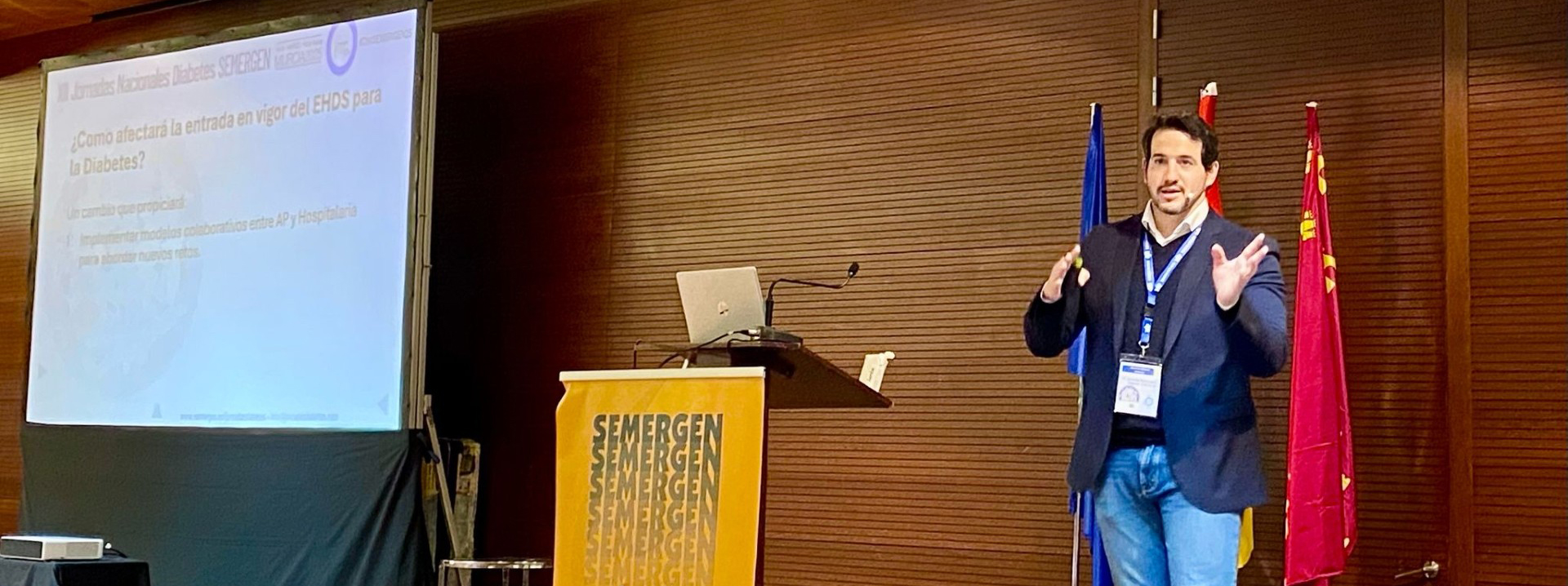Antonio Martínez Millana, Deputy Director of the ITACA Institute at UPV, delivered the closing lecture at the 12th National Diabetes Conference of SEMERGEN, held on 14 and 15 March in Murcia. His presentation focused on advancements in digitalisation and artificial intelligence for improving diabetes management and treatment in primary care, with a particular emphasis on the role of the European Health Data Space (EHDS).
During his speech, Martínez Millana emphasised how the synergy between precision medicine, digitalisation, and healthcare management is transforming diabetes care. He outlined the significance of artificial intelligence (AI) in addressing the challenges of managing this disease and its complications in primary care.
«AI in healthcare integrates medicine, nursing, statistics, engineering, and management to develop solutions tailored to real needs and adaptable to different contexts», said Dr Martínez Millana.
He also highlighted advances in artificial intelligence applied to diabetes, such as predictive models and classification of glycaemic curves.
«These systems allow patients to receive alerts about changes in their glucose levels, improve treatments, and assist in clinical decision-making. Additionally, large-scale models are being developed that could eliminate the need for carbohydrate counting and predict complications such as retinopathy or diabetic ulcers», explained the UPV professor.
Moreover, he emphasised the potential of generative AI, which opens new opportunities for processing large volumes of information through natural language, democratising access to knowledge and tools to enhance the management of family and community medicine, as well as nursing.

The EHDS: A new paradigm in healthcare data access
A key point in the presentation was the analysis of the European Health Data Space (EHDS), a regulatory framework designed to facilitate secure access to clinical data across the European Union. Martínez Millana explained that the EHDS will allow greater interoperability between health systems, enabling continuity of care and promoting decision-making based on up-to-date and complete data.
«In Spain, €28 million has been invested in the implementation of healthcare data lakes, with pilot projects, such as the use of antibiotics in the National Health System and the prediction of decompensations in chronic diseases. The integration of the EHDS with these developments positions Spain at a competitive advantage within the European digital health ecosystem», asserted the ITACA-UPV researcher.
To conclude his speech, Martínez Millana stressed that while technological advancements are essential, they alone will not be sufficient to transform healthcare.
«Technological advancements provide a key tool for sustaining a healthcare model that currently faces significant challenges. The emergence of continuous monitoring sensors and digital solutions offers opportunities to enhance diabetes management. However, while the technological and political landscape is aligned, real transformation will depend on the commitment of primary care professionals and their ability to effectively integrate and apply these tools«, concluded the UPV professor.



